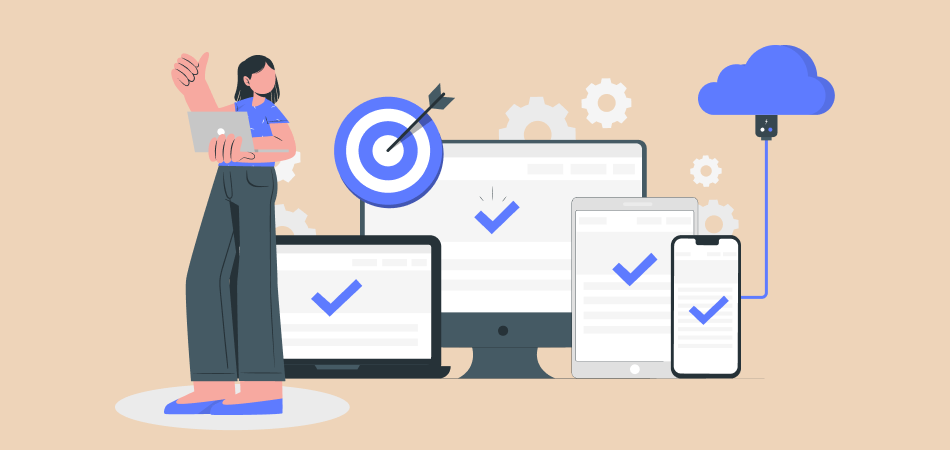How to Deal With Stress at Work As An Entrepreneur

Being an entrepreneur sounds pretty impressive, but it takes a lot of hard work, dedication, and commitment. Entrepreneurs have to deal with several obstacles while climbing the stairs to success. Sometimes, they have to deal with upset customers, and occasionally adding new products to the store becomes extremely tiresome.
Nevertheless, Achieving goals can be stressful, and every entrepreneur must know how to work in a stress-free environment. So, if you're wondering about how to deal with stress at work as an entrepreneur, you can read this write-up for some effective tips.
Identifying Sources of Stress
While going through stressful times, an entrepreneur must focus on identifying the sources of stress first. Once you figure out the sources, you reach one step closer to finding the solution. So, the first step is to find the sources of stress, and the most common ones include:
Financial Stress: Money management is the most common reason for stress, and financial stress is a common companion on an entrepreneurial journey. Many entrepreneurs work non-stop and often lose sleep to ensure their business stays on top.
| Get Started Now to Grow Your Online Business with the Best AliExpress Dropshipping Tool - DSers! |
Being highly concerned about business growth and putting in enormous efforts to keep the business afloat leads to financial anxiety. It eventually impacts mental health and creates other health issues.
Employee Management: A business achieves all its goals because the employees work as hard as the owner. But, as your business grows, the number of employees drastically increases. Hence, entrepreneurs have to invest a bit extra to manage their employees, which also becomes stressful at some point.
Balancing Work and Personal Life: Every working professional must balance their work and personal life. However, entrepreneurs are too involved in their work and can't focus on their personal life much, which somehow promotes the stress factor in their life.
Apart from these, work overload, responsibility pressure, intense competition, and uncertainty about the future are some primary stressors entrepreneurs face.
Identifying Individual Sources of Stress
While common stressors exist, every entrepreneur has unique triggers that affect their well-being. Hence, it is essential to identify these individual sources of stress to work better and keep your well-being on top. As an entrepreneur, you must reflect on your experiences and take note of the situations, tasks, or interactions that consistently leave you feeling overwhelmed or anxious.
The Importance of Self-Awareness
Entrepreneurs must be self-aware of their current condition and try their best to avoid stressful circumstances. Understanding triggers and stressful factors also help in keeping control of emotions. Moreover, having your emotions in control helps you make the right decisions and keep stress at bay.
All you need to do is pay attention to your thoughts and feelings, track your stress levels, and communicate about everything possible. Doing this much is enough to be self-aware and stress-free while working.
Effective Stress Management Techniques
Every working professional has to deal with work stress as it is unavoidable. You surely cannot remove the stress factor completely, but you can definitely manage it with the help of these strategies:
Time Management
There's no point in pushing things too far; they may bring results but deteriorate your mental health. Hence, it is better to manage your time according to work. If possible, try working in a fixed set of hours every day, and once you're done with the work, give yourself some time to relax.
You cannot work continuously as a machine, so you must know when to turn the laptop off. Giving systematic breaks will not waste your time but enhance your productivity instead.
Setting Boundaries
Setting boundaries protects you from falling into the trap of working around the clock. For starters, you must draw a line between professional and personal life. In addition, you must apply this to your clients and stakeholders. They should know the times you're available and when you're not.
It is only possible to communicate clearly with your clients and stakeholders and familiarize them with your response time, availability, and limitations.
Exercise and Mindfulness Practices
Being a workaholic is not good for your physical and mental health. Whenever possible, you must give a full stretch to your body, and don't forget to exercise. Exercise releases endorphins and proves to be effective in short-circuiting anxiety.
However, there's no need to focus too much on your physical well-being and spend 3 hours in the gym. Moving your body or doing a little physical activity would be enough.
Seeking Support and Building a Network
You can always ask for support from your loved ones, as they'll always be there for you no matter how hard the situation is. So, whenever you find yourself stuck and can't think of a solution, communicate with the trustworthy ones and find a way to deal with the challenges.
In addition, being an entrepreneur gives you the advantage of connecting with other experienced professionals in the field. You can network with the best advisors, working professionals, and even your subordinates.
Prioritizing Self-care
You won't be able to achieve success if you're not able to take care of yourself. So, instead of spending hours in meetings and growth analysis, you must prioritize self-care. Eat healthily, sleep well, and exercise enough to keep yourself healthy. Finally, believe in yourself and keep trying, as it is one of the most important habits to be a successful entrepreneur.
Creating a Stress Management Plan
Humans cannot imagine a life without stress, and the only way to handle it is by managing it effectively. So without any further ado, let's find out how you can create a stress management plan.

Assessing Individual Stress Levels
First of all, you must assess the individual stress levels that can help you in forging an excellent stress management plan. Go through a deeper analysis of your daily routine and observe your condition while handling daily tasks.
Whether it is about spending time with family or working hard, you must not leave any aspect that can be a source of stress. Understanding the specific stressors that impact you personally enable targeted interventions.
Setting Goals for Stress Management
After you figure out your stress levels and to what extent stress can affect you, focus on creating realistic stress management goals. To begin with, identify areas where you would like to reduce or better cope with stress.
For example, try improving work-life balance, practicing relaxation techniques, or enhancing time management skills. Setting specific, measurable, achievable, relevant, time-bound, all-in-all "SMART" goals ensures clarity and increases the likelihood of success.
Creating a Plan to Implement Stress Management Techniques
After setting the goals regarding stress management, you must develop a well-structured plan to apply the strategies. You can invest your time in exercising, practicing mindfulness, establishing boundaries, seeking social support, and engaging in hobbies or self-care activities.
Prioritize techniques that resonate with you and align with your goals. Break down your plan into actionable steps and integrate stress management practices into your daily routine.
Monitoring Progress and Adjusting the Plan as Needed
Another important step you need to take while creating the best stress management plan is monitoring your progress. Keeping an eye on the progress made and evaluating the effectiveness of your own plan helps you understand your current state.
As mentioned earlier in this write-up, you must keep a journal to track your stress levels, triggers, and the impact of implemented techniques. Adjust according to your results, and move ahead with your plan.
Tips for Reducing Stress in the Workplace
Coming as far, you must've understood that the major reason for stress revolves around your work. So, you must know a few tips to reduce stress in the workplace.
Prioritizing Tasks and Delegating Responsibilities
Taking up too much work and getting buried under pressure is a common habit of entrepreneurs. Hence, you must align the tasks and deal with them according to their complexity. Another way to sort things out is by prioritizing tasks based on urgency and importance.
In addition, you must learn to delegate responsibilities when appropriate, effectively distributing the workload and promoting efficiency.
Avoiding Overcommitment
There's no need to say "yes" to every opportunity, and you must be comfortable saying "no" when necessary. Take up tasks and work pressure that you can handle. In that case, setting realistic boundaries and managing expectations can do wonders. Doing that much can help you to maintain a manageable workload and dedicate ample time and energy to each task.
Fostering a Positive Work Environment
A positive work environment can significantly impact stress levels, and you must try your best to maintain positivity at your workplace. Cultivate a supportive and collaborative atmosphere by fostering open communication, teamwork, and appreciation for colleagues' contributions. By fostering positivity, you can create a workplace that reduces stress and enhances job satisfaction.
Taking Breaks and Avoiding Burnout
No one likes to work continuously, as breaks are vital. Regular breaks throughout the workday help you maintain focus, enhance productivity, and keep your mental well-being on top.
Step away from your desk, engage in brief physical activity, or practice relaxation techniques. If possible, utilize vacation days and practice self-care regularly to recharge and maintain a healthy work-life balance.
Conclusion
In conclusion, entrepreneurs must try their best to manage their stress levels, as they're the most common reason for poor productivity. Keeping your focus on work is one thing, but you must keep yourself aware of your health condition. By identifying the sources of stress, implementing stress management techniques, and creating a personalized stress management plan, you can thrive while effectively managing stress and achieving your goals.
Remember, self-care and maintaining a healthy work-life balance are key habits for a successful entrepreneurial journey.













 Company
Company
 Why Choose DSers
Why Choose DSers
 Blog
Blog
 Help Center
Help Center



